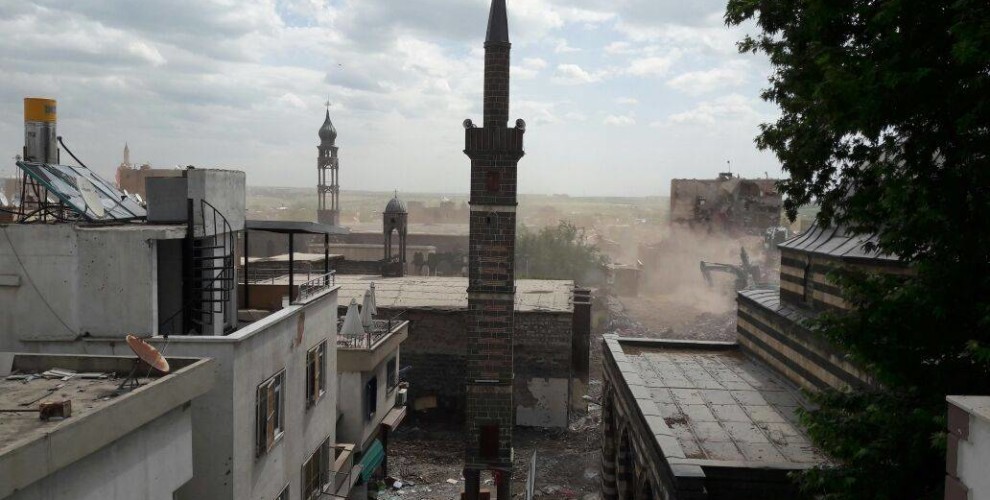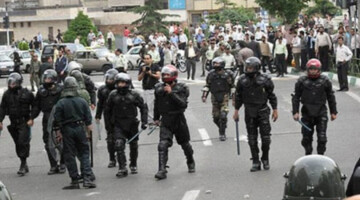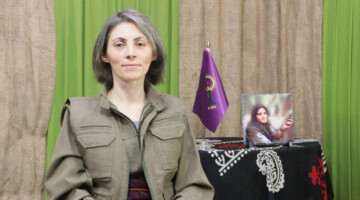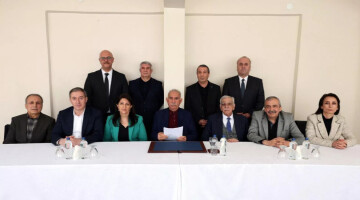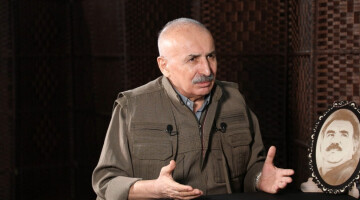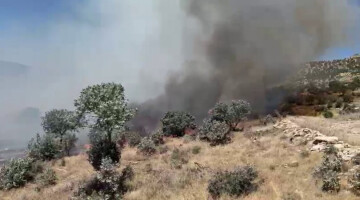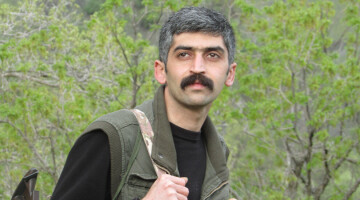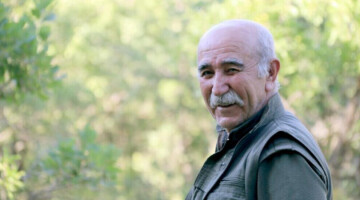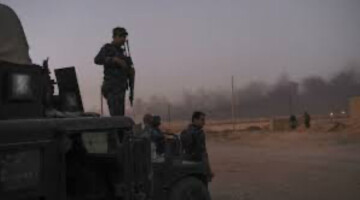The longest curfew in history was declared on December 2, 2015 in Amed’s Sur district and wasn’t lifted after the 103 day long intense clashes ended. It has been two years since the curfew started, and the demolition that began in March 2016 with the complete expropriation of the district also continues. AKP officials visiting Amed had promised to the residents protesting them that Sur would be made a “center of attraction” again, houses would be rebuilt and the district would “be like Toledo”. The lie beneath these promises was revealed when the development plan for Sur was declared. 6.300 plots in 368 blocks of Sur’s 15 neighborhoods were expropriated.
HISTORY DAMAGED
The curfews caused great cultural and humanitarian destruction, while sacred sites considered to be the common faith and culture heritage for humanity were laid to ruins. Churches, mosques, manors and bath houses in the historic town were destroyed. The Behram Pasha Bath House, built between 1564 and 1567, was targeted by heavy weapons. The Hacı Hamit Mosque, the one-of-a-kind 1500 years old Four Pillared Minaret and its mosque the Sheikh Mutahar Mosque, the Armenian Catholic Church, the Mehmed Uzun House, the Crown Prince Mansion, the Protestant Church, the Mor Pedriom Chaldean Church and the Surp Giragos Armenian Church, which was the biggest church in the Middle East, were heavily damaged in the clashes.
SIX OUTPOSTS BEING BUILT
As the historic houses of Sur are torn down one by one, in areas where the curfew continues, the public housing authority TOKİ’s new buildings are not compatible with the architecture of the historic Sur houses. According to the Chamber of Architects, the “Conservation Development Plan” that would constitute the framework for the reconstruction in Sur was never implemented, and a different project emerged. This changed project includes 6 outposts, which are being built in the Hasırlı, Cevatpaşa, İskender Paşa, Melik Ahmet and Alipaşa neighborhoods now. Roads to connect these outposts are also being built, and there has been no consideration for the fabric of the district in the expansions. The development plan does not include any information on what will happen to the demolished historic buildings.
The state bought the houses after a 82% expropriation, and forced the resident into TOKİ buildings. Thousands have had to leave their homes in the demolition that has continued since May 23 in the Alipaşa and Lalebey neighborhoods, while the citizens who refused to leave their homes were punished as they were left without water and power during the month of Ramadan. The TOKİs on the Elazığ and Urfa roads were presented to the people who had to leave the neighborhoods as “reduced price” homes. The Ministry of Urbanism and Environment had presented the people with TOKİ houses in previous the demolition, and the same plan was enacted once more to force the people into TOKİs. Ministry officials continue to promise TOKİ apartments to residents of Alipaşa and Lalebey neighborhoods in return for leaving Sur, and citizens who don’t accept the TOKİs mostly continue their lives in the back neighborhoods of Sur, or in other districts like Bağlar and Şehitlik. People who manage to somehow hold on to Sur want the state to leave them alone.
SYRIACS SUBJECTED TO CULTURAL GENOCIDE
Priest Yusuf Akbulut from the ancient Mother Mary Syriac Church, which was greatly damaged in the clashes, point out that the clashes were used as an excuse to demolish houses to push the peoples apart. Akbulut said they started the legal process about the demolition and that the state is implementing a gentrification project to change the cultural makeup of Sur. Akbulut added that they did not leave Sur in the months long clashes and they will fight to preserve the historic fabric of Sur no matter what. Stating that the demolitions and military rule practices continue in the district despite clashes having ended, Akbulut pointed out that there are armored vehicles and police checkpoints throughout Sur and that the district has been turned into an open-air prison. Akbulut also stated that with the clashes, policies of drugs, prostitution and espionage have also spread. Akbulut said the Syriacs are being subjected to a cultural genocide and added: “Sur is one of the last places where we keep our culture alive. If we are pushed out of here, it will not be possible for us to keep our faith alive. Just for that, we will never abandon Sur.”
“ANYBODY WITH FAITH SHOULD SPEAK UP TO THIS TYRANNY”
Nimetullah Esen was an imam in Sur before he was expelled from duty. Esen stated that the state targets different faiths and cultures, and that they want to destroy the historic fabric of Sur and the Kurdish culture as well. Esen said religion has been turned into a propaganda tool for politics, and added: “Which religion preaches that it’s halal for so many people to be killed, murdered? People were killed in Sur. Their homes were demolished. This is not Islam. This would not be OK in any faith. They should fear Allah. They tried to justify themselves through religion while such young people were killed.”
Esen said Muslims, Ezidis, Syriacs and people from many other faiths lived together in Sur for centuries and said: “This government turned peoples against each other. Now the places where these rare faiths live together are being destroyed. Anybody with faith should speak up against this tyranny and rise up against injustice.”
“SUR IS OUR HONOR, WE WILL NOT SURRENDER IT TO THE STATE”
Beritan Uzan is one of the residents who has not left Sur despite the clashes. She said the state is trying to push people out of Sur and added: “We will not leave Sur, even if we die. They tore down our homes. They killed our youth. We lost everything for Sur. That is why, whatever they do, we will not abandon Sur.”
Uzan said they were offered money to leave Sur: “They think they can trick us with money. We will give the same money the state offered us, and they can leave Sur. This is our past, our childhood. We grew up in these streets. They want to put us into apartments and destroy our culture. I will do whatever is necessary so my children grow up here.”
Uzan said she grew up in Sur and continued: “They failed to push us out of Sur with tanks and artilleries and panzers. Now they have turned our district into a horrible place with drugs and prostitution. When the young people were resisting in Sur, they fought both the state fascism and prostitution. We will continue to fight where they left off. Sur is our honor, we will not surrender it to the state.”
RESISTING THE DEMOLITION IN A TENT
The Ak family set up a tent after their home in Sur was forcibly demolished to stay in Sur, and are not leaving the district despite the cold. The Ak family migrated from the Kazıktepe village in the Çınar district to Sur’s Alipaşa neighborhood during the 1990’s and are among the families resisting to stay in Sur. Mevlüde Ak (56) said they are struggling to survive in the tent with 6 people, including 2 small children, and added: “My children grew up here. They opened their eyes here, we won’t live anywhere else. They tore down our home, but they won’t be able to tear down our tent. The state thinks they can discipline us with hunger and thirst. We have already lived under state oppression for years. If they kick us out of one place in Sur, we will set up our tent in another. We don’t have a house with walls, but our mobile tent stands. Such a great price was paid for these houses, and we will continue to resist here with our tent.”

